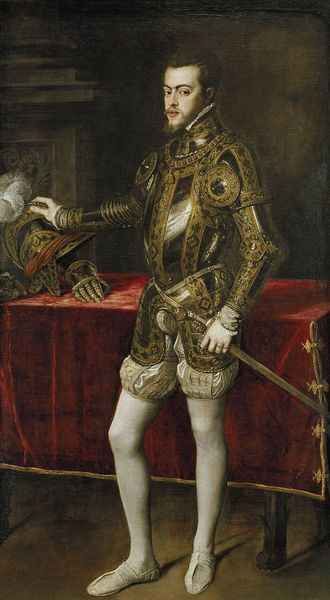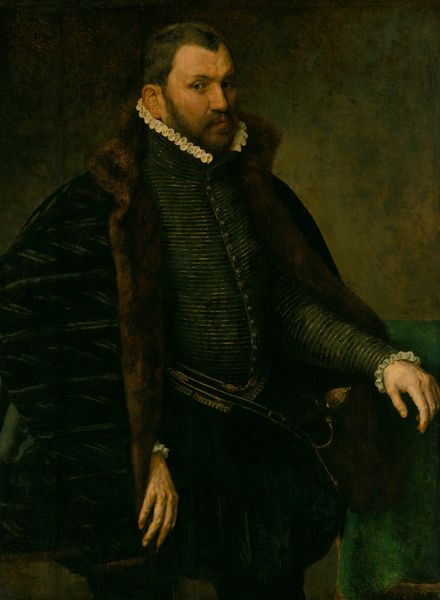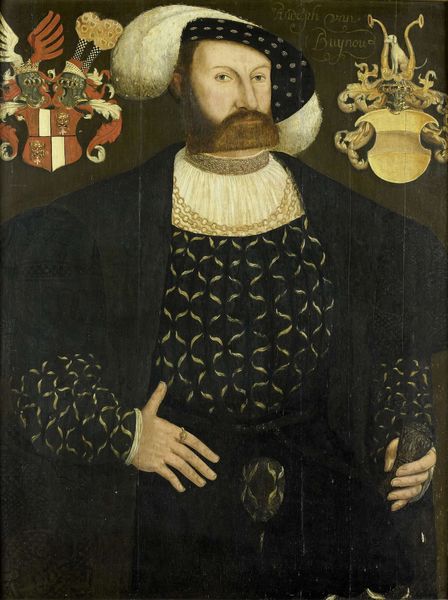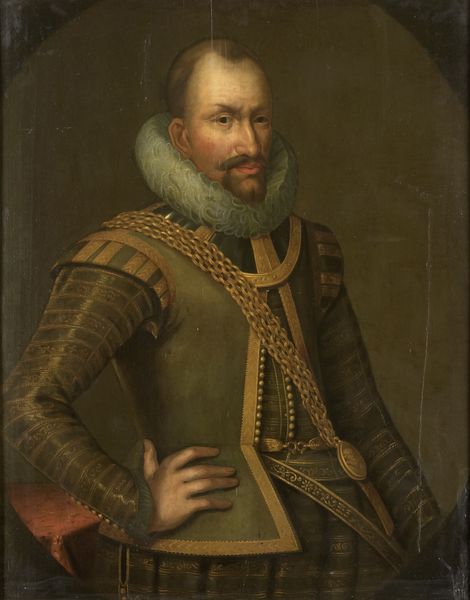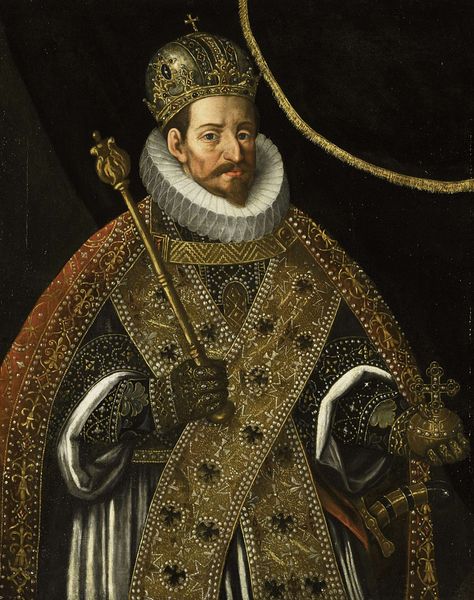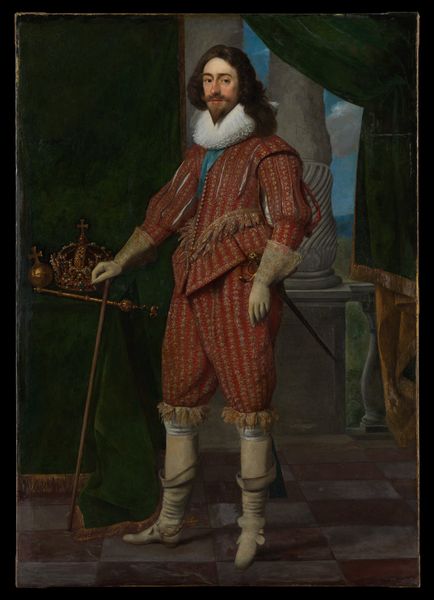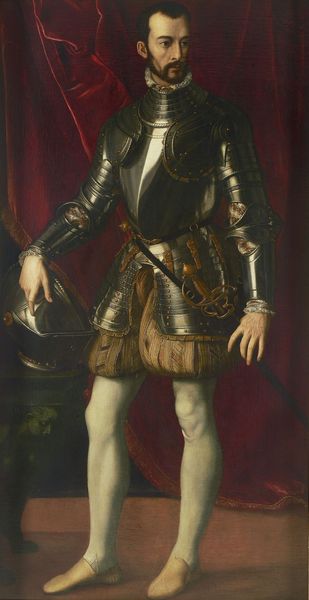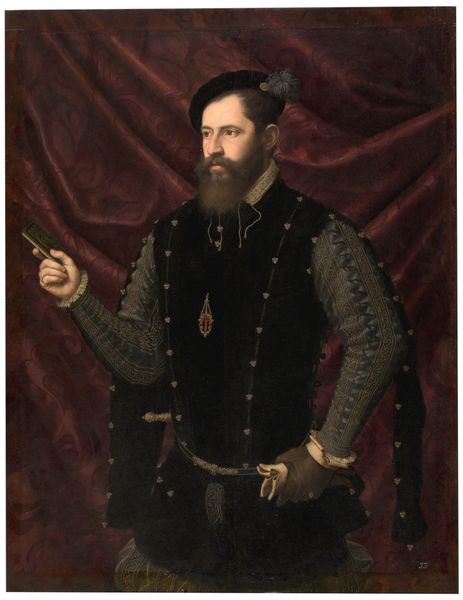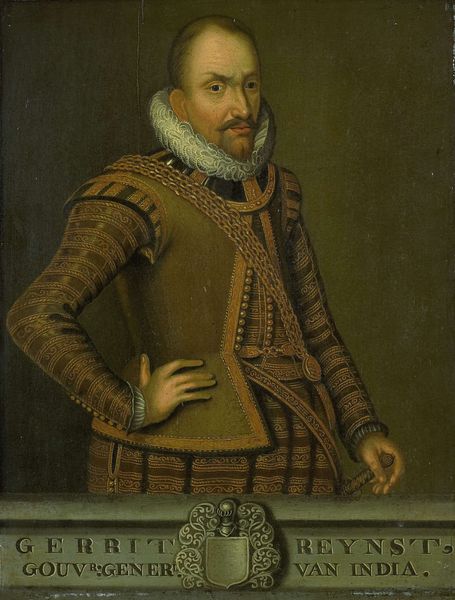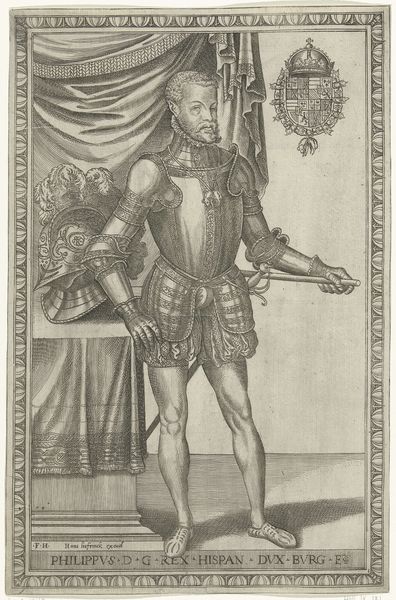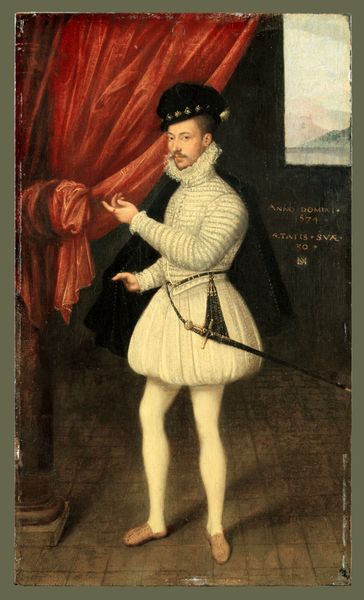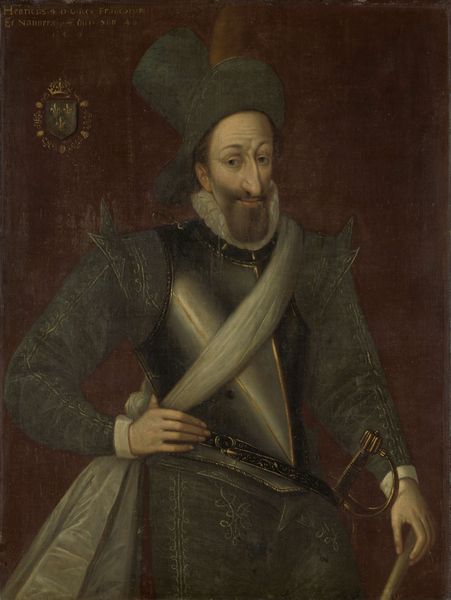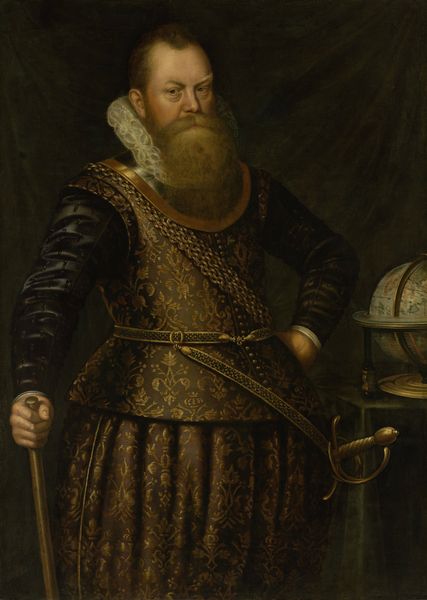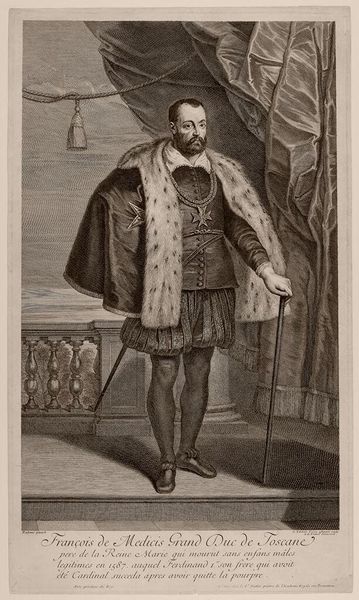
Dimensions: support: 2305 x 1508 mm
Copyright: CC-BY-NC-ND 4.0 DEED, Photo: Tate
Curator: Marcus Gheeraerts the Younger painted this arresting full-length portrait of Captain Thomas Lee. It now resides at Tate Britain. Editor: My first impression is one of stark contrast. The opulence of his attire clashing with his bare legs and feet creates an immediate visual tension. Curator: Indeed, the bare feet symbolize his identification with the Irish, whom he spent much time trying to subdue, while the armor and clothing signify his English identity. Editor: It is a fascinating piece of propaganda, a carefully constructed image intended to project authority and strength, but the reality was far more complex, wasn't it? Curator: Precisely. The symbols here create a narrative about identity and power, reflecting the troubled Anglo-Irish relations of the time, but the lived experience was brutal. Editor: Understanding the politics behind such portraits helps us see them less as straightforward depictions, and more as carefully crafted statements about power and cultural control. Curator: Yes, exploring the visual symbols and historical context has certainly made this portrait even more compelling to consider.
Comments
tatebritain 3 months ago
⋮
http://www.tate.org.uk/art/artworks/gheeraerts-portrait-of-captain-thomas-lee-t03028
Join the conversation
Join millions of artists and users on Artera today and experience the ultimate creative platform.
tatebritain 3 months ago
⋮
This striking portrait is highly political. Thomas Lee was an officer in Elizabeth I’s army, fighting to colonise Ireland. His expensive embroidered shirt and ornate armaments express wealth and status. Yet his bare legs refer to the uniform of Irish kerns (foot soldiers), the lowest status fighters. This may be a reference to Lee’s complaints that English officers in Ireland were poorly paid. The portrait was probably produced to show Lee’s loyalty to the Queen after he was suspected of treachery. He seems to be saying that despite appearances, he is loyal to his own side. Gallery label, July 2024
